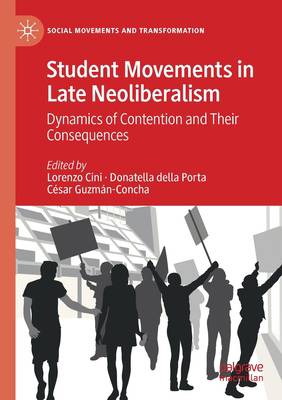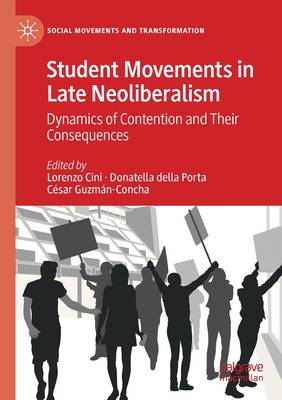
- Afhalen na 1 uur in een winkel met voorraad
- In januari gratis thuislevering in België
- Ruim aanbod met 7 miljoen producten
- Afhalen na 1 uur in een winkel met voorraad
- In januari gratis thuislevering in België
- Ruim aanbod met 7 miljoen producten
Student Movements in Late Neoliberalism
Dynamics of Contention and Their Consequences
Omschrijving
This book inquires into the global wave of student mobilizations that have arisen in the aftermath of the economic crisis of 2008, accounting for their historical and sociological significance. More specifically, its eleven chapters explore the role of students as political actors: their ability to build effective organizations, to make political alliances with other actors, and to win public consensus, as well as their impact on cultural, political, and policy outcomes. To do so, the volume examines case studies in England, Chile, South Africa, Quebec, and Hong Kong, covering Europe, Africa, Asia, and North and Latin America. Grouped into two major sections, the collection covers the organizational structures of student movements and their alliances and outcomes. Ultimately, this volume examines the understudied political aspects of student unrest, exploring how student mobilizations--driven by indebtedness, precariousness, the corporatization of the university, and other issues--correspond to larger processes of change with wider implications in society.
Specificaties
Betrokkenen
- Uitgeverij:
Inhoud
- Aantal bladzijden:
- 310
- Taal:
- Engels
- Reeks:
Eigenschappen
- Productcode (EAN):
- 9783030757564
- Verschijningsdatum:
- 24/08/2022
- Uitvoering:
- Paperback
- Formaat:
- Trade paperback (VS)
- Afmetingen:
- 148 mm x 210 mm
- Gewicht:
- 399 g

Alleen bij Standaard Boekhandel
Beoordelingen
We publiceren alleen reviews die voldoen aan de voorwaarden voor reviews. Bekijk onze voorwaarden voor reviews.








